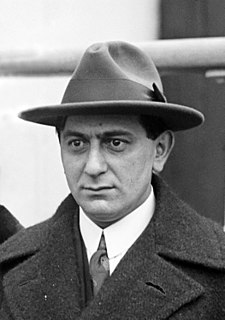Top 11 Quotes & Sayings by Ernst Lubitsch
Explore popular quotes and sayings by a German director Ernst Lubitsch.
Last updated on April 15, 2025.
It is the task of the scenarist to invent little pieces of business that are so characteristic and give so deep an insight into his creatures, that their personalities clearly and organically unfold before the eyes of the audience so that the latter feel that the actions of these people are contingent upon their characters, that there exists some kind of a logical fate, and that nothing is left to mere accident or coincidence.






















